Activist clubs host drive to fight period poverty
‘This is a really important and positive step forward in creating a more equitable education environment’
Feminist Club, Medical Club, Girl Up, Period Club, and NHS members gathered in room 3714 during Cardinal Hour on Nov. 5 to help package period products collected from the period drive held from Oct. 15 to Oct. 29 at school to donate to the Houston Area Women’s Center.
On Friday, Nov. 5, Feminist Club, Girl Up, Period Club, Medical Club and NHS volunteers gathered in Room 3714 during Cardinal Hour to package menstrual products for the Houston Area Women’s Center. This event was held in effort to spread awareness over menstrual health and lack of menstrual products at Bellaire.
The products packaged were supplied by the collaborative club-hosted period drive from Oct. 15-29. Donation boxes were placed across teachers’ classrooms, and students were encouraged to donate disposable products such as pads, tampons and liners.
Senior and President of the Feminist Club Phoebe Hulen said the drive prompted many students to take initiative and educate themselves over menstrual health.
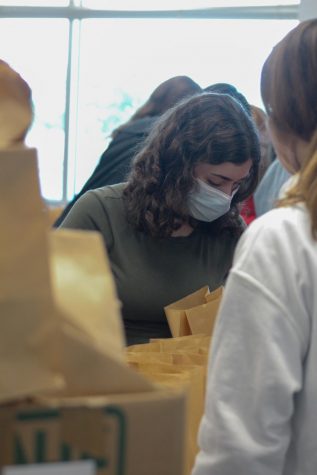
“I’ve had an influx of students who’ve come and talked to me personally who have shared about our club and spoken about menstrual health issues,” Hulen said. “It’s really made an impact within the Bellaire community.”
Hulen said she understands the difficulties that inaccessibility to menstrual products creates.
“Between joblessness, homelessness and school absences, there’s a lot of different facets within the issue of not having access to menstrual health information and products,” Hulen said.
Zoe Kass, senior and President of the Medical Club, is involved in menstrual equity advocacy outside of school and said she knows that lack of access to menstrual products is common among schools.
“I’m a part of Period Pack Houston and through my work with them, I’ve seen that schools are a huge place of need for menstrual products,” Kass said. “If you expect somebody to get an education and do well in school, they need to have that support.”
As of right now, there are no bathrooms at school that supply machines for pads and tampons, leaving students to seek products from the nurse.
“I wish you could see how many people come in for pads,” nurse Chanthini Thomas said.
In the past, Thomas used to supply menstrual products out of her own paycheck.
“I would just buy and buy and buy,” Thomas said. “I quit because you get a little jaded— I’m not a mean person, but I feel like there are other things I need to buy.”
Now, Thomas dedicates her money toward buying food and snacks for kids who are diabetic and water for dehydrated students.
“To me, that’s more important, so I put it behind,” Thomas said.
Thomas suggests machines that dispense pads and tampons around campus that will encourage students to be self-responsible.
“I would be willing to put the machine in the clinic, and then the kids could put their quarters in and get their pads,” Thomas said. “I think that would give them a little more responsibility.”
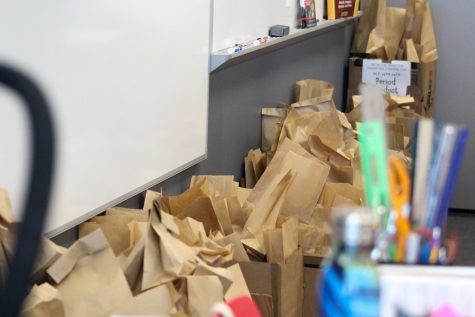
Thomas said that pad and tampon machines would also keep kids in class longer, as they wouldn’t have to search the school for menstrual products.
“My goal is to keep kids in class,” Thomas said. “I don’t want to be a part of the mess up, I want to be a part of the solution.”
Concern for lack of menstrual products at school has also led Zoe Kass to work with Maria Borsa, Italian National Honor Society sponsor, to launch a Donors Choose project on Oct. 7 in order to supply school bathrooms with baskets of menstrual products. On Nov. 4, the project was fully funded by donors from all over the country that totaled $687.
“I think that this is a really important and positive step forward in creating a more equitable education environment,” Kass said.
The Italian National Honor Society expects to stock the girls bathrooms across campus with free period products within the next two weeks.
Your donation will support the student journalists of Bellaire High School. Your contribution will allow us to purchase equipment and cover our annual website hosting costs.


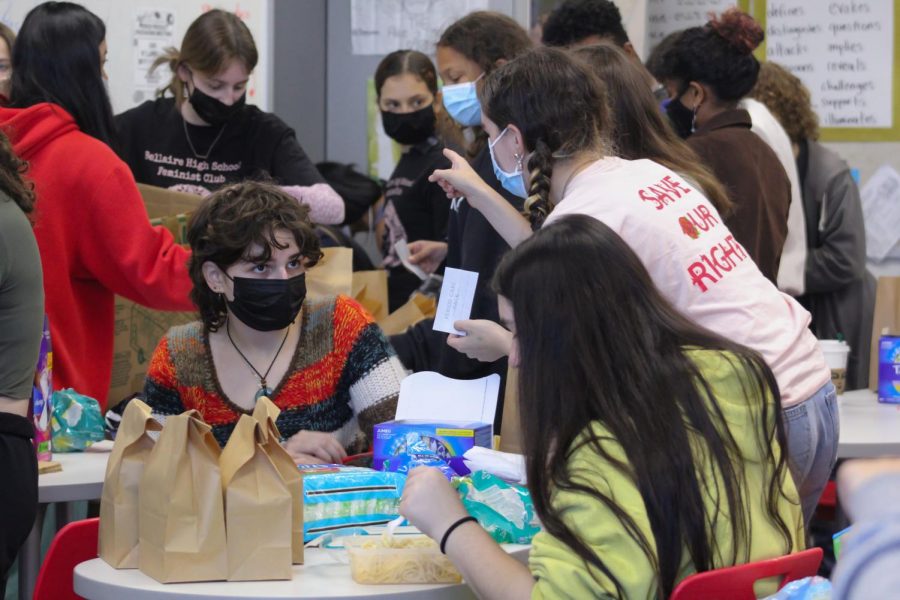
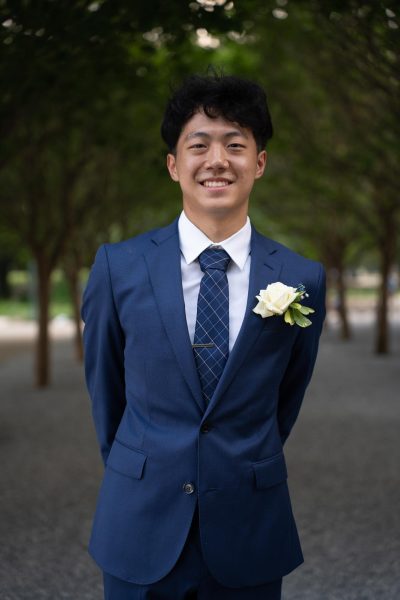
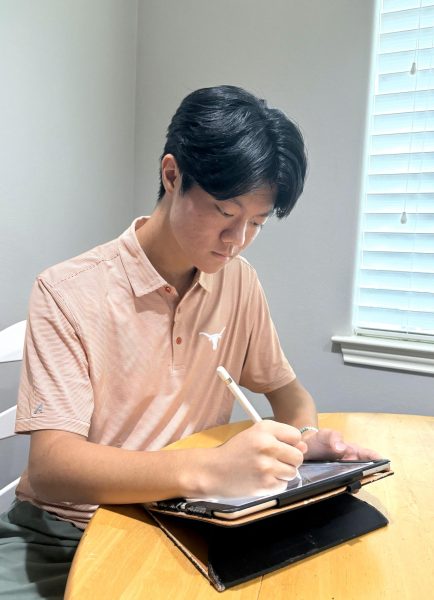
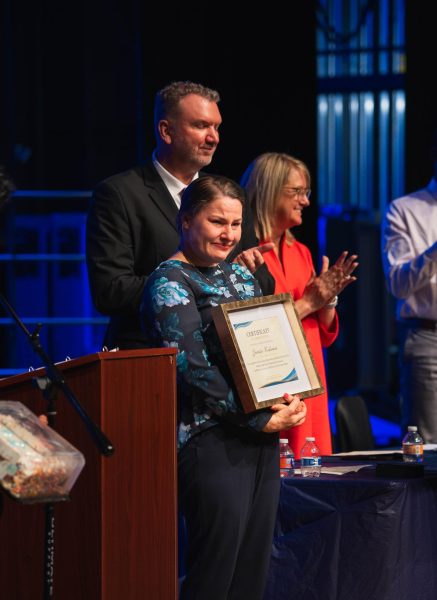


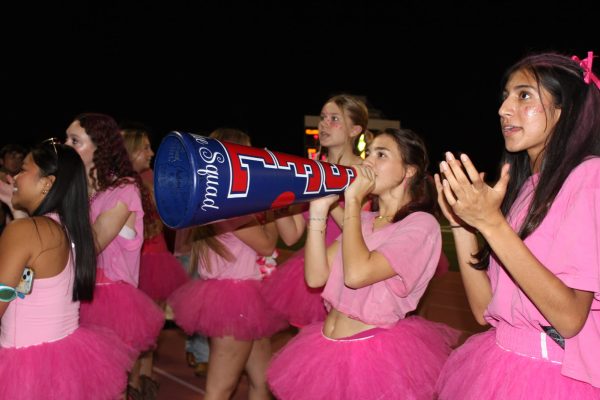


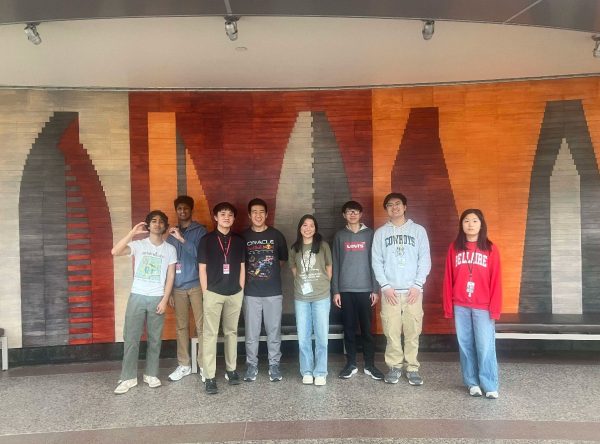
Adrien • Dec 8, 2021 at 12:19 pm
I attended this meeting and am also a member of the club itself, although this is a major step in the right direction there are still many things that need to be addressed and fixed involving periods and people who have them. For example, the belief that is still held to this day that your period is something that isn’t normal when it very much is. But overall this club is fantastic in the destigmatization of menstruation, and feminist activism.
Anonymous • Dec 8, 2021 at 12:05 pm
Something interesting in the article was the reason for why period products are just now being put into bathrooms. Some more information in the article is the lack of care for women’s menstrual needs in today’s society. The article discussed how it has taken us a while to have products in our bathrooms and how some people do not have the accessibility to these products. I myself along with many other people agree with this. I hope that in the future our needs will be recognized much sooner.